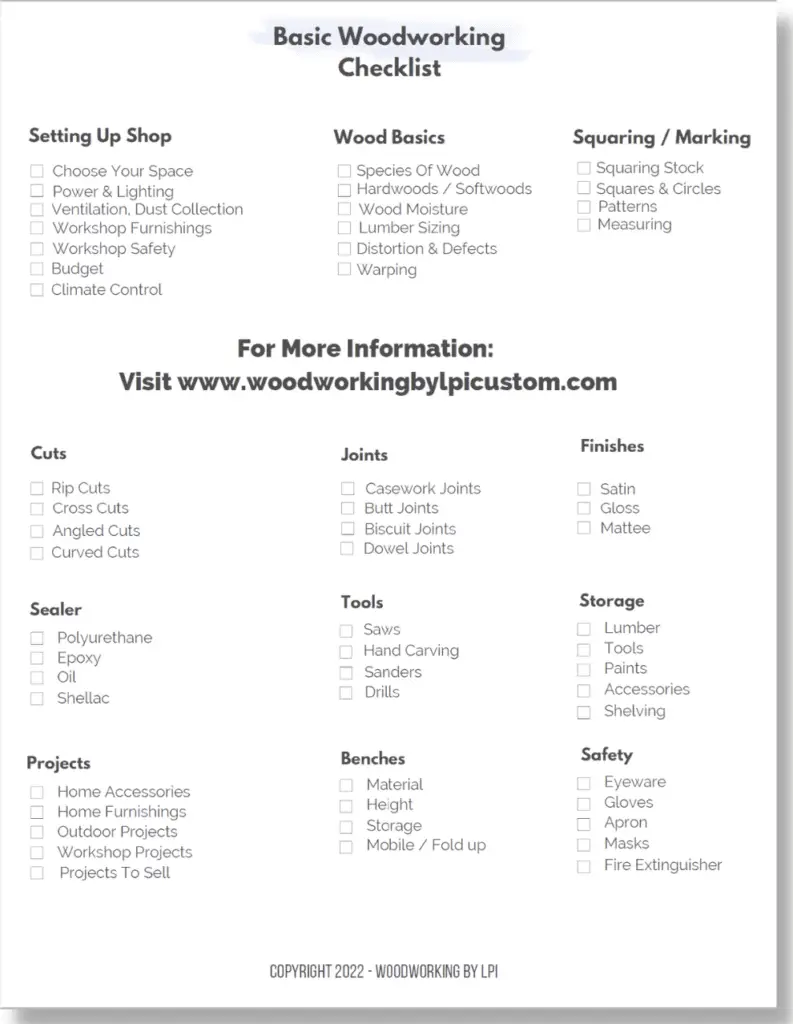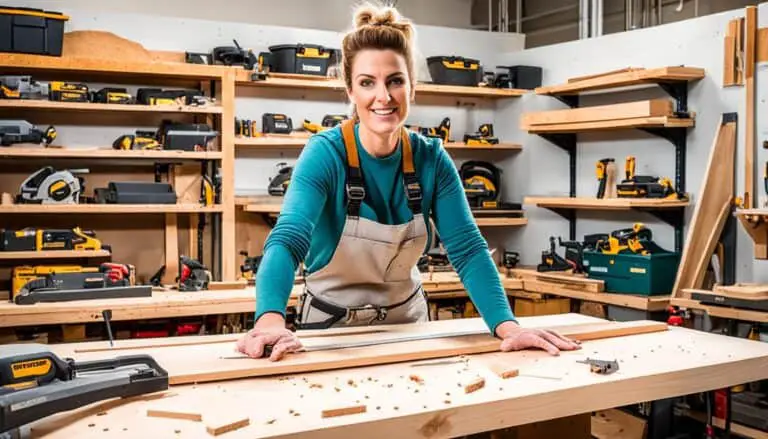As woodworkers, we want to wear gloves to protect our hands. What are the considerations for wearing gloves? Is it more dangerous or is it safer to wear gloves? Wearing gloves in the wood shop is a personal choice for most woodworkers and I wanted to see what is the best gloves and what do they offer.
When considering gloves to use when woodworking you need to look at the purpose. Solvents, splinters, and safety are considerations when looking at the different types of gloves to wear. There are many types of gloves on the market. You need to pick the right one for what you are performing in your wood shop.
We see all kinds of gloves on the market for many different purposes. Some are for solvents, handling smooth and rough wood, or better grip. They all protect our hands from the hazards of the wood shop. Knowing this what are the best gloves for your wood shop. Let’s look at the different types of gloves and the purpose to better understand gloves for the wood shop.
Should You Wear Gloves While Woodworking

This is a big question and I am sure has been on the mind of several woodworkers. Wearing gloves has many pros and cons. I find that I wear gloves in the wood shop quite a bit and didn’t really think about the pros and cons.
Let’s look at the reasons you would wear gloves in your wood shop.
- Solvents – When using different types of solvents in your wood shop you handle solvents such as stains, paints and paint thinner. These types of solvents have affects on your skin and is why you would wear them.
- Rough Wood – When handling rough wood, such as freshly milled wood with rough edges, you run the risk of getting splinter and cutting your hands. Gloves such as leather gloves or Ironclad general utility gloves help protect your hands.
- Cuts – Cuts are common when working with wood. Not only from the wood itself but from tools and machinery you use when working with wood. Leather gloves or Ironclad general utility gloves are good for this purpose.
- Basic Protection – Basic protection is the goal of wearing gloves in your wood shop. This would be to protect you from dust and basic types of dirt and debris which you encounter in your wood shop.
Recommended Types Of Gloves For Your Wood Shop
Depending on what woodworking projects you do in your wood shop you will need different types of gloves. For example, if you work more with rough wood you would use more of a leather type of glove to handle the wood. Or if you are a furniture maker you may use Nitrile gloves for the stain or sealer.
As a woodworker, more specifically a wood sign maker, I use Nitrile gloves daily to protect my hands from the stain and sealer which is what I use the most. I wanted to provide a good list of general considerations for recommended gloves that are proven and I have used and highly recommend for your wood shop.
#1 – Nitrile Disposable Gloves
If you work with any solvents, stains, or sealers in your wood shop these Nitrile Disposable Gloves are crucial. I use them all the time. They don’t protect your hands from anything abrasive but fit very well and allows me to work with sanding, staining, and sealing very well.
They are elastic and have a slight powder inside which means they don’t stick to your hand when using them. Since they are disposable as I transition from sanding to staining with a change in gloves quickly.
If you paint in your wood shop these work very well. They protect your hands from getting a lot of paint on your hands. When staining, these work very well. They protect your hands and you won’t have to go thru all of the efforts of removing stain from you hands.
Pros:
- Easy to wear and fits very well
- Textured Fingertips – Allows you to grip things such as paintbrushes or sandpaper easily
- Very durable and will stand up to use
Cons:
- The thin material may rip if you working with something abrasive
If you would like to purchase the Nitrile Disposable Gloves for your wood shop you can purchase them here from Amazon.
#2 – Cut Resistant Gloves – Chyda
If you work with glass, metal or use hand carving tools in your wood shop these gloves are recommended. They are graded to level 5 for food preparation and are machine washable. They are great for handling anything which has a sharp or abrasive edge.
They are flexible, comfortable, and fit your hands very well for handling metal, glass, or sharp tools. If you consider using these you may want to order a size larger than you believe will fit as they typically come smaller in size.
These may seem odd to use in your wood shop, however, if you work with extremely sharp tools or wood projects these will definitely provide protection for your hands, and tools and materials have a tendency to slip. This would answer the question are there woodworking kevlar gloves or kevlar type gloves.
Pros:
- Protection from sharp metal, glass and wood tools
- Level 5 Food Grade Protection
- Ability to clean in your washing machine when dirty
- Flexible and comfortable fit
Cons:
- Tend to run small from the vendor
- Does not protect against solvents such as stain or sealer
If you would like to purchase the Chyda Cut Resistant Gloves for your wood shop you can purchase here from Amazon.
#3 – Ironclad General Utility Gloves
When you look around online or at Home Depot or Lowes these are the gloves you generally see, the Ironclad General Utility Gloves. They work extremely well and don’t sweat or shrink due to the synthetic leather construction.
They are very well suited for handling wood and gripping all other materials and tools in your wood shop. If you are picking things up, handling tools, or working with moving things in your wood shop these are an excellent choice.
If you are not using solvents, for example, stain or sealer, and are working in your wood shop these gloves are excellent. They provide general protection. So if you are in the market for a great glove these fit the bill.
Pros:
- Great fit
- Reinforced Palms and fingertips
- Ability to clean in your washing machine when dirty
Cons:
- Does not stand up well to solvents, for example stain or sealer
- Very good price and great for generic use around the wood shop
If you would like to purchase the Ironclad General Utility Gloves for your wood shop you can purchase here from Amazon.
Should You Were Gloves When Using A Table Saw

There are a lot of things to consider when using a table from a safety perspective. These include other safety equipment you will want to have such as safety glasses for your eyes, hearing protection for your ears, and for your lungs a good respirator.
Above these safety considerations are you wearing gloves? This seems to be a subject that has both sides of the conversation. Some sources state you should wear gloves to keep control of your material as you pass it thru the saw.
Other sources state you should not wear gloves when operating a table saw. I understand both sides of the discussion, however do not recommend wearing gloves when operating a table saw.
There are two items which you need to consider.
- Sense of touch – Gloves will not provide you with the sense of touch as you hold the material and pass thru the blade. Additionally if you are wearing bulky cumbersome gloves you will not be able to control the material as well when pushing thru the table saw.
- Getting Caught By The Blade – When wearing gloves with the table saw you increase the risk of them getting caught by the blade. This can be dangerous much like wearing loose fitting clothes when using the table saw.
Best Gloves For Handling Wood

When considering looking at gloves for use in your wood shop and your woodworking projects there are a lot of gloves in the market. How do you choose? Here I wanted to provide a list of considerations to help you narrow down your list.
What Level Of Woodworking
- Heavy Use – If you are looking for gloves to use with milling, wood chopping gloves, chainsaw or miter saw the use of the Chyda gloves may be a good choice. Or secondly, a good heavy leather glove or lumber glove which will serve you well. Additionally, these are the best gloves to prevent splinters.
- Medium – This would be the level where your wood material is not rough but just to the point of getting ready to sand and perform more finish-level work. For this level, the Ironclad General Utility Gloves work really well.
- Light – This includes handling more finished wood material, and staining or sealing your wood material. For this level, the Nitrile Gloves are a good choice.
Material Of The Gloves
Another consideration for choosing gloves for your wood shop would be material and how that works with what you are task you are performing.
- Allergy – If you have allergies to certain types of materials used in gloves, such as latex or Nitrile the may be a consideration in your choice.
- Breathability – Depending on the environment you work in, cold or hot, your choice of gloves may be impacted. You want to have a practical choice to serve the purpose, however, you want your hands to be able to breathe so you do not sweat inside of them all the time either. This may cause a safety issue if your hands are continually moving around inside the gloves.
Resistance Or Protection
We use gloves to protect our hands from many things. This may include solvents, dust, or stains. We also use them to protect our hands from cuts or tools that may hurt us. Here is a good list to consider when looking at gloves for your wood shop.
- Water/Solvents – If you work with wood long enough you know that you need to dry. There are many methods to drying the wood, however they do get wet. This will affect the ability to grip the wood. Additionally, if you work with a lot of solvents or stains you know they will always find a way to your skin. A good glove solution that protects you is a consideration.
- Cut/Puncture – Most gloves provide general protection against cuts or punctures. However, we have mentioned there are many dangers in the wood shop from tools or working with materials that may cut your hands if you don’t have the correct protection. Good examples of this are glass and metal. Consider the type of material or the tools you use when selecting gloves in your wood shop.
Size Of The Gloves
This may seem like a common thought with regard to selecting a set of gloves, however, it can make or break your choice. If you have too large of a glove that may cause a safety issue.
Also, many manufacturers have guides or lists that state the size of the gloves being purchased. Some of these run smaller or larger which can be frustrating. A good suggestion is always to buy in bulk to get the right price. However, if you are unsure of what the size of the gloves may be (If not specified in the remarks or reviews), purchasing one or a small amount would be recommended.
Getting the gloves right for the right purpose and size is critical to your safety and performance in your wood shop. I hope this has helped with your decision-making and made it a little better to go look for your wood shop gloves.












